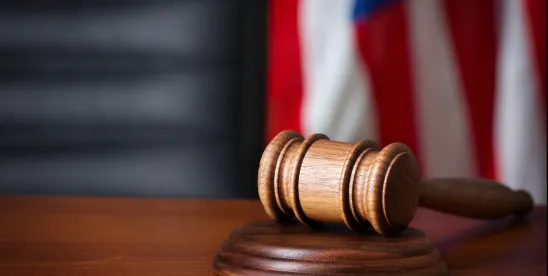We understand. The other party to your contract breached your deal, acted in bad faith, and cost you money and your business reputation. It’s personal; you trusted them, and they abused your trust. You want to sue them immediately and don’t care what it costs or how long it takes. We agree with your position and are prepared to go to the mat with you.
Let’s pause first.
Before we start drafting the complaint, you should carefully consider your company’s appetite to invest in a lawsuit. Because whatever you stand to gain in a lawsuit, you stand to lose a great deal as well. We’re not talking about legal costs; you already know about those. We’re talking about the costs of lost productivity, business disruption, and generally lower work satisfaction. These costs come about because of the single-most expensive, time-consuming, and annoying part of any lawsuit — one you are certain to encounter if we file that complaint.
Discovery
What litigators call “discovery” you call “the other side making us give them every document we have and answer questions about everything that has ever happened since the beginning of time.” Your characterization is pretty accurate. Discovery is wholly disruptive. Depending on the complexity of your claims, discovery can take anywhere from six months to two years. Factors that can bog down discovery include expert witnesses, a high volume of documents, electronically stored information (ESI) that must be collected and reviewed, and a large number of witnesses who need to sit for depositions.
While we can certainly mitigate the effects of discovery through use of technology, maximization of efficiencies within our service teams, and crafting reasonable limits with opposing counsel, the thing you will most hate about discovery is its inherent breadth. Parties can discover any non-privileged matter that is (1) relevant to your (or their) claims or defenses and (2) proportional to the needs of the case, and they do so via a variety of methods. If you cannot (or don’t want to) resolve your dispute through negotiation, the following will be part of your life as you navigate through litigation:
- Interrogatories. These are written questions used to obtain information from another party. Your answers will be in writing and under oath. As a consequence, we will go over each response with you to a painstaking degree to make sure your responses are true, accurate, and not susceptible to misinterpretation.
- Requests for Production. The other side may ask you to collect and turn over relevant documents, ESI, and tangible things within your possession, custody, or control. Most jurisdictions do not limit the number of requests for production a party can make, and there are scant arguments for withholding documents you don’t want the other side to see. In addition, you will need to implement preservation protocols at the outset to ensure all discoverable documents, including ESI, remain available for the lawsuit.
- Electronic Discovery. We will need you to give us a detailed description of the company’s data structure, data retention policies, and custodians so we know where to find potentially relevant ESI. ESI is broadly defined. It includes emails, text messages, voicemails, deleted files, data files, program files, temporary files, system-history files, and website information. ESI can be found everywhere: hard drives, network servers, laptops, home computers, and even your employees’ and officers’ cell phones — which, in some cases, may need to be collected and copied if they were used to communicate about work matters. While we would do our best to apply e-discovery practices to ensure proper, complete collection and preservation, this process is undoubtedly where the most frustration and expense lies.
- Requests for Admissions. The other side may ask you to admit or deny the truth of a particular statement. You must either admit the statement, deny it, or explain in detail why it cannot be admitted or denied. These are like interrogatories. You must consider every possible interpretation of your response — and the statement you are responding to — before you answer.
- Depositions. Both sides will want to depose witnesses under oath before trial. In federal court, the number of depositions is limited to ten per side, but that can be increased by stipulation or court order. Some jurisdictions do not limit the number of depositions a party can take. Most limit a deposition to seven hours in one day, but that can also be increased. Depositions require diligent preparation that can be time-consuming and costly.
- Expert Discovery. Your case may require you to retain an expert with scientific, technical, or other specialized knowledge to testify on your behalf. This can be stressful because the expert must independently assess what you, the other side, or both did before the lawsuit and whether it comported with relevant standards. Experts often need to interview employees of the party who hired them, including the very employees whose actions they have been hired to assess — or second-guess.
You will hate all of this and, despite our best efforts, will likely start to question why you embarked on this process in the first place. As such, we want to help you consider the inevitable difficulties with litigation — and particularly discovery — before filing your lawsuit. The truth is these tasks will be as much your burden as ours. Your personnel will need to locate and collect documents requested in discovery and help us prepare for depositions. It will be an enormous task, and one that will most likely have a negative impact on the company’s productivity. And once you’ve started litigation, there is no escape from discovery except at the end of the case — however that comes about.
Of course, writing this article is an exercise in breach of our best interest. We are, at our core, driven and passionate litigators. However, litigation may not be in your best interest. Sometimes it is your only realistic option. In those situations, we are some of the best trial lawyers in the business, and we welcome the fight. In other instances, the invasiveness, stress, time, and cost of discovery are good reasons to allow us to put on our counselling hat and do everything we can to resolve a case before it is filed. While we will zealously represent you through trial, your best litigation strategy may be not to litigate at all. We love the fight, but we love you more.





 />i
/>i

